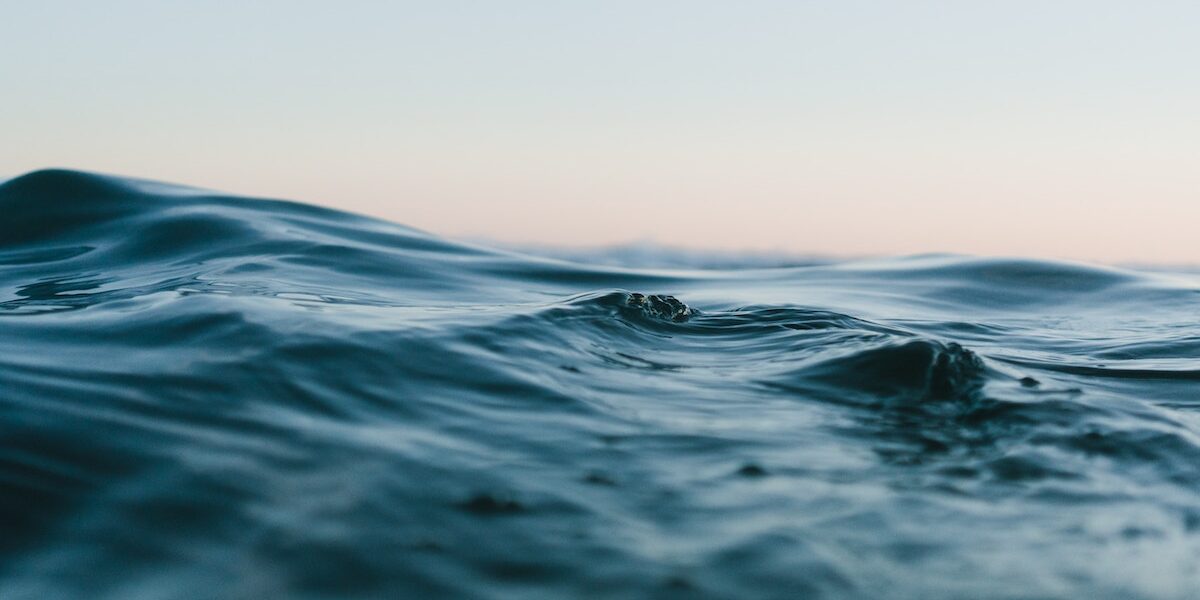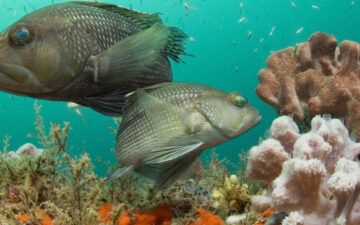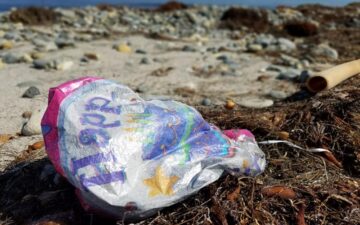By Angel Braestrup — Chair, TOF Board of Advisors
On the eve of the spring Board meeting of The Ocean Foundation, I found myself marveling at the willingness of our Board of Advisors to play a role in ensuring that this organization is as robust and helpful to the ocean conservation community as it can be.
The Board approved a significant expansion of the Board of Advisors at its meeting last fall. We are taking this opportunity to announce the first five of those twenty new advisors who have agreed to formally join The Ocean Foundation in this special way. Members of the Board of Advisors agree to share their expertise on an as needed basis. They also agree to read The Ocean Foundation’s blogs and visit the website to help us ensure that we remain accurate and timely in our sharing of information. They join the committed donors, project and program leaders, volunteers, and grantees who make up the community that is The Ocean Foundation.
Our advisors are a widely traveled, experienced, and deeply thoughtful group of people. We cannot be grateful enough to them, for their contributions to the well-being of our planet, as well as to The Ocean Foundation.
 William Y. Brown is a zoologist and lawyer and currently a nonresident Senior Fellow at the Brookings Institution in Washington, DC. Bill served in leadership positions at an array of institutions. Brown’s former positions include the Science Advisor to Secretary of the Interior Bruce Babbitt, President & CEO of the Woods Hole Research Center in Massachusetts, President & CEO of the Academy of Natural Sciences in Philadelphia, President & CEO of the Bishop Museum in Hawaii, Vice President of the National Audubon Society, Vice President of Waste Management, Inc., Senior Scientist and Acting Executive Director of the Environmental Defense Fund, Executive Secretary of the U.S. Endangered Species Scientific Authority, and Assistant Professor, Mount Holyoke College. He is a director and former president of the Natural Science Collections Alliance, a former chairman of the Ocean Conservancy and of the Global Heritage Fund, and a former director of the Environmental and Energy Study Institute, Environmental Law Institute, U.S. Committee for the United Nations Environment Programme, U.S. Environmental Training Institute, and the Wistar Institute. Bill has two daughters and lives in Washington with his wife, Mary McLeod, who is the principal deputy legal advisor at the Department of State.
William Y. Brown is a zoologist and lawyer and currently a nonresident Senior Fellow at the Brookings Institution in Washington, DC. Bill served in leadership positions at an array of institutions. Brown’s former positions include the Science Advisor to Secretary of the Interior Bruce Babbitt, President & CEO of the Woods Hole Research Center in Massachusetts, President & CEO of the Academy of Natural Sciences in Philadelphia, President & CEO of the Bishop Museum in Hawaii, Vice President of the National Audubon Society, Vice President of Waste Management, Inc., Senior Scientist and Acting Executive Director of the Environmental Defense Fund, Executive Secretary of the U.S. Endangered Species Scientific Authority, and Assistant Professor, Mount Holyoke College. He is a director and former president of the Natural Science Collections Alliance, a former chairman of the Ocean Conservancy and of the Global Heritage Fund, and a former director of the Environmental and Energy Study Institute, Environmental Law Institute, U.S. Committee for the United Nations Environment Programme, U.S. Environmental Training Institute, and the Wistar Institute. Bill has two daughters and lives in Washington with his wife, Mary McLeod, who is the principal deputy legal advisor at the Department of State.
 Kathleen Frith, is the Managing Director of the Center for Global Health and the Environment, housed at Harvard Medical School in Boston, Massachusetts. In her work at the Center, Kathleen has pioneered new initiatives centered on the relationship between healthy humans and healthy oceans. In 2009, she produced the award-winning film “Once Upon a Tide” (www.healthyocean.org). Currently, Kathleen is working with National Geographic as a Mission Blue partner to help restore a healthy, sustainable seafood resource. Before joining the Center, Kathleen was the Public Information Officer for the Bermuda Biological Station for Research, a U.S. oceanographic institution in Bermuda. Kathleen holds a Bachelor’s degree in marine biology from the University of California Santa Cruz and a Master’s degree in science journalism from Boston University’s Knight Center for Science Journalism. She lives in Cambridge with her husband and daughter.
Kathleen Frith, is the Managing Director of the Center for Global Health and the Environment, housed at Harvard Medical School in Boston, Massachusetts. In her work at the Center, Kathleen has pioneered new initiatives centered on the relationship between healthy humans and healthy oceans. In 2009, she produced the award-winning film “Once Upon a Tide” (www.healthyocean.org). Currently, Kathleen is working with National Geographic as a Mission Blue partner to help restore a healthy, sustainable seafood resource. Before joining the Center, Kathleen was the Public Information Officer for the Bermuda Biological Station for Research, a U.S. oceanographic institution in Bermuda. Kathleen holds a Bachelor’s degree in marine biology from the University of California Santa Cruz and a Master’s degree in science journalism from Boston University’s Knight Center for Science Journalism. She lives in Cambridge with her husband and daughter.
 Carleton Ray, Ph.D., and Jerry McCormick Ray are based in Charlottesville, Virginia. The Rays have been engaged in promoting systems thinking in marine conservation for decades in their work. Dr. Ray has focused on global coastal-marine processes and distributions of the biota (especially vertebrates). Past research and teaching have centered on the roles of marine mammals in the ecosystems of the Polar Regions. Present research emphasizes the ecology of temperate fish in coastal zones and relationships between biological diversity and ecosystem function.
Carleton Ray, Ph.D., and Jerry McCormick Ray are based in Charlottesville, Virginia. The Rays have been engaged in promoting systems thinking in marine conservation for decades in their work. Dr. Ray has focused on global coastal-marine processes and distributions of the biota (especially vertebrates). Past research and teaching have centered on the roles of marine mammals in the ecosystems of the Polar Regions. Present research emphasizes the ecology of temperate fish in coastal zones and relationships between biological diversity and ecosystem function.
 In addition, with colleagues in his department and elsewhere, the Rays are developing approaches to coastal-marine classification, principally for the purposes of conservation, research and monitoring. The Rays have written a number of books, including one about wildlife of the Polar Regions. They are currently working to complete a revised edition of their 2003 Coastal-Marine Conservation: Science and Policy. The new edition expands the number of case studies to 14 worldwide, engages new partners, and adds color photos.
In addition, with colleagues in his department and elsewhere, the Rays are developing approaches to coastal-marine classification, principally for the purposes of conservation, research and monitoring. The Rays have written a number of books, including one about wildlife of the Polar Regions. They are currently working to complete a revised edition of their 2003 Coastal-Marine Conservation: Science and Policy. The new edition expands the number of case studies to 14 worldwide, engages new partners, and adds color photos.
 Based near Sao Paolo, Brazil, María Amália Souza is the Founding Executive Director of CASA – Center for Socio-Environmental Support www.casa.org.br, a small grants and capacity building fund that supports community based organizations and small NGOs working at the intersection of social justice and environmental protection in South America. Between 1994 and 1999 she served as Director of Members Services for APC-Association for Progressive Communications. From 2003-2005 she served as chair of the Global South Task Force for Grantmakers without Borders. She currently serves on the board of NUPEF – www.nupef.org.br. She runs her own consulting business that helps social investors –individuals, foundations and companies– to develop solid philanthropic programs, evaluate and improve existing ones, and organize field learning visits. Past jobs include an evaluation of AVEDA Corporation’s partnership with indigenous communities in Brazil and coordinating participation of the Funders Network on Transforming the Global Economy (FNTG) at three World Social Forums.
Based near Sao Paolo, Brazil, María Amália Souza is the Founding Executive Director of CASA – Center for Socio-Environmental Support www.casa.org.br, a small grants and capacity building fund that supports community based organizations and small NGOs working at the intersection of social justice and environmental protection in South America. Between 1994 and 1999 she served as Director of Members Services for APC-Association for Progressive Communications. From 2003-2005 she served as chair of the Global South Task Force for Grantmakers without Borders. She currently serves on the board of NUPEF – www.nupef.org.br. She runs her own consulting business that helps social investors –individuals, foundations and companies– to develop solid philanthropic programs, evaluate and improve existing ones, and organize field learning visits. Past jobs include an evaluation of AVEDA Corporation’s partnership with indigenous communities in Brazil and coordinating participation of the Funders Network on Transforming the Global Economy (FNTG) at three World Social Forums.







